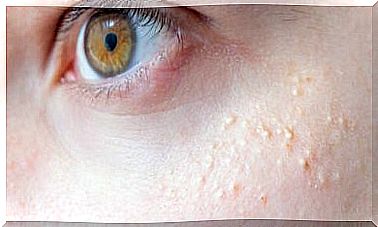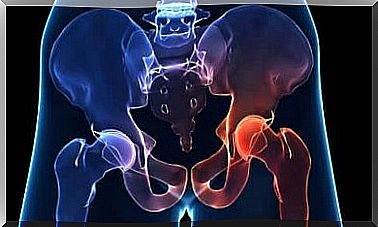Adults Who Were Not Loved As Children

Attachment is the foundation of human development and is an undoubted source of life satisfaction. But what happens to adults who weren’t loved as children ? In fact, this situation appears to be the source of some behavioral problems.
At birth, the protection and security we need are based on the love that only parents can give us. However, this does not always happen and this is reflected in adulthood on behavior and in relationships with others.
What adults experience who were not loved as children
Lack of love in childhood can generate unimaginable consequences in adulthood. We have highlighted some of them below.
1. Indifference to the feelings of others
Faced with the lack of affection received as children, it is possible that some people show difficulty in attuning to the feelings of others. This trait is known as “insensitive behavior” or “limited prosocial emotions”.
In this sense, studies such as the one conducted by the Department of Psychology at the University of Michigan have explored how the lack of affection in the first years of life has effects in the 10-12 years and even the 20 years.
Specifically, the authors note that this deficiency is related over the years to less empathy on the part of children and adolescents whose parents have been more detached or even aggressive in their upbringing.
More recent reviews also highlight how the quality of parent-child interactions is associated with a greater understanding of others’ feelings. This actually makes it easier to establish positive relationships with others. Thus underlines a study conducted by several researchers from the Dutch universities of Tilburg and Utrecht.
These results therefore focus on the consequences that are experienced if, for different reasons, one is not loved in childhood.
However, in many cases it is possible to intervene early. There are, in fact, programs designed to help parents deal with certain problems (financial, personal, etc.) and teach them healthier communication styles.
Furthermore, as the last publication cited points out, relationships with peers are a strong support. They are also a clear opportunity to train empathy and create positive interpersonal bonds.

2. Problems relating and expressing their emotions in adults who were not loved as children
Based on the foregoing, the lack of affection in childhood can be the beginning of a chain of problematic future generations.
The person who has not received affection from their parents can repeat the same pattern with their children. Indeed, if we have not received love in childhood, we run the risk of repeating, without realizing it, what we have learned.
And affection in childhood is the “engine” that drives the altruistic abilities of the human being. As we grow, they are the result of the quality of love we experienced in the first few years of life.
Therefore, it is difficult to ignore how these unmet needs in childhood manifest themselves later in adulthood. Unconsciously, the protagonists of this situation try to fill that void, which determines their behavior and the way they relate to others.
In fact, research such as that conducted by Professor Adam J. Rock and his team provides relevant evidence to this effect. The authors discovered how different attachment styles (secure, anxious or avoidant) are related to the behavior we assume in social interactions.

The importance of giving love to children
As we can see, showing affection to children is extremely important for several reasons. Above all, it should be considered that the humanization process of people is formed precisely through the love received in childhood.
And the affection experienced in the first years of life is closely related to the development of future interpersonal skills. So if we want to prevent children from growing up with such deficiencies, we need to give them the affection they deserve.
And if as parents we need help, we don’t hesitate to ask for it. Early intervention, social support and psychological counseling in these cases are, undoubtedly, the most useful strategies to consider.










